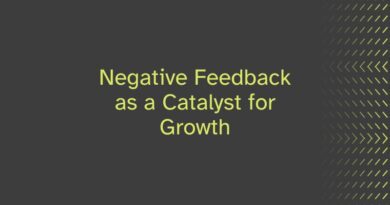What Is Intellectual Disability and How Is It Treated?
Previously known as mental retardation, intellectual disability (ID) is a neurodevelopmental disorder marked by notable impairments in both intellectual functioning and adaptive behavior that start before the age of 18. Affecting approximately 1–3% of the global population, the condition varies in severity—from mild functional impairment to profound disabilities requiring lifelong support. Yet with compassionate, evidence-based intervention, individuals with ID can lead meaningful, empowered lives.
Causes and Risk Factors of Intellectual Disability
Intellectual disability may result from genetic, prenatal, perinatal, or postnatal influences, though some cases remain idiopathic. Common causes include:
- Genetic: Chromosomal disorders like Down syndrome or Fragile X, and single-gene conditions such as phenylketonuria.
- Prenatal: Infections (e.g., rubella), teratogens (e.g., alcohol), malnutrition.
- Perinatal/postnatal: Hypoxia during birth, traumatic brain injury, infections like meningitis, neglect.
Symptoms and Presentation of Intellectual Disability
Individuals with intellectual disability experience challenges across multiple domains:
- Cognitive: To prevent escalation, early detection and intervention are crucial.
- Adaptive behavior: Difficulties in self-care, communication, social interaction, and independent living.
- Emotional/behavioral: Elevated risk for anxiety, depression, and behavioral issues.
Symptoms manifest early—infants and toddlers may display delayed milestones, while children and adults show sustained support needs
Assessment and Diagnosis of Intellectual Disability
- Diagnosis: A multidisciplinary team including educators, occupational and speech therapists, paediatricians, psychologists, and psychiatrists is required.
- Psychological testing: Standardized IQ tests (e.g., WISC, Stanford-Binet) and adaptive behavior scales (e.g., Vineland) establish intellectual and functional deficits.
- Clinical evaluation: Medical history, neurological exam, and genetic testing as needed to identify causality and comorbid conditions.
Severity Classification
Based on DSM-5 and AAIDD frameworks, intellectual disability severity is labeled as mild, moderate, severe, or profound, contingent on functional independence and level of daily support required.
Interventions and Supports
- Effective support is lifelong and personalized. Early intervention is critical.
Educational Support
- Special education with IEPs tailored to cognitive profiles and learning styles.
- Inclusive education models promoting peer integration.
Behavioral and Therapeutic Services
- ABA to reduce maladaptive behaviors and strengthen skills.
- Speech, occupational, and psychological therapies (e.g., CBT for co-occurring mood disorders).
Family & Community Support
- Caregiver counseling and training, respite care to prevent burnout.
- Community inclusion programs bolster social skills and independence.
Medical Management
- Addressing comorbid conditions such as epilepsy, ADHD, and mood disorders through integrated care.
Professional Insights: Dr. R. K. Suri (Psychowellness Center)
Dr. R. K. Suri, a highly experienced chartered clinical psychologist, leads multidisciplinary care at Psychowellness Center and mentors at TalktoAngel.
- Begins with comprehensive psychological assessments—including standardized IQ and adaptive behavior tests—to craft individualized treatment plans.
- Employs evidence-based modalities: cognitive therapies for executive skills, behavior management, and family counseling to empower caregivers and foster collaboration across home, school, and community.
- Emphasizes a strengths-based philosophy that honors dignity, autonomy, and potential, aligning with best practices for integrated care.
Accessible Care via TalktoAngel
TalktoAngel offers accessible, confidential online counselling support tailored for individuals with intellectual disability and their caregivers:
- Certified therapists specializing in intellectual and developmental disabilities, offering flexible, private sessions.
- Recommendations for caregiver support techniques, educational accommodations, and behavior management.
- Inclusive, culturally sensitive care for diverse socioeconomic and linguistic backgrounds.
This model narrows service gaps for families in remote or underserved regions.
Promoting Inclusion and Awareness
Building inclusive societies involves:
- Challenging stigma and replacing outdated terminology.
- Advocating for equitable educational and employment opportunities.
- Supporting self-advocacy and participation in decision-making.
- Adapting environments to be accessible and resource-rich for individuals with ID.
Conclusion
Intellectual disability is a chronic condition that impacts daily functioning and cognitive abilities. However, timely diagnosis, multidimensional interventions, and strength-based, dignified care can unlock vast potential. Dr. R. K. Suri’s holistic and collaborative model, the comprehensive services at the Psychowellness Center—the best mental health wellness clinic in Delhi—and the flexible, accessible support of TalktoAngel together exemplify impactful care. Through our combined efforts to raise awareness, promote inclusive behaviors, and strengthen support networks, people with intellectual disabilities can live purposeful, happy lives.
References
American Psychiatric Association. (2022). Diagnostic and statistical manual of mental disorders (5th ed., text rev.). American Psychiatric Association.
Merck Manuals. (2024, July). Hoarding disorder. Merck Manual Professional Version. Retrieved July 2025, from https://www.merckmanuals.com/home/mental-health-disorders/obsessive-compulsive-and-related-disorders/hoarding-disorder
National Center for Biotechnology Information. (n.d.). Table 3.29 DSM‑5 Hoarding Disorder criteria. In The impact of the DSM‑5 hoarding disorder classification. Retrieved July 2025, from https://www.ncbi.nlm.nih.gov/books/NBK519704/table/ch3.t29/
Our Mental.Health. (n.d.). A guide to hoarding disorder. Retrieved July 2025, from https://www.ourmental.health/hoarding-disorder/diagnostic-criteria-for-hoarding-disorder-in-the-dsm
Mayo Clinic. (n.d.). Hoarding disorder: Symptoms and causes. Retrieved July 2025, from https://www.mayoclinic.org/diseases-conditions/hoarding-disorder/symptoms-causes/syc-20356056
Verywell Mind. (2015, May 14). What you should know about a hoarding disorder. Retrieved July 2025, from https://www.verywellmind.com/what-is-hoarding-disorder-2510602
Verywell Health. (2024, July 15). Here’s what hoarding disorder looks like in older adults—and what care they need. Retrieved July 2025, from https://www.verywellhealth.com/hoarding-disorder-resources-needed-8676238
Wikipedia contributors. (2025, July XX). Hoarding disorder. In Wikipedia, The Free Encyclopedia. Retrieved July 2025, from https://en.wikipedia.org/wiki/Hoarding_disorder
Reddit. (n.d.). Discussion highlighting executive functioning deficits and perfectionism in hoarding behaviors [Online forum comment]. Retrieved July 2025, from https://www.reddit.com/r/Psychiatry/comments/16zxrjh




